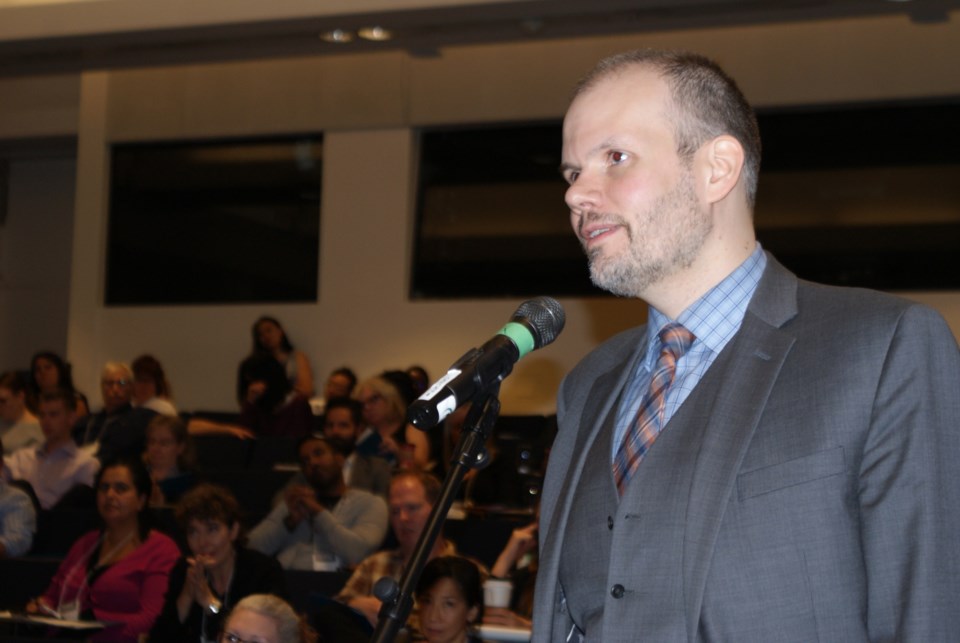A lack of truthful information is eroding people’s faith in political institutions and contributing to a rise in authoritarian governments and can be countered by greater government openness and accountability, says an expert on freedom of information.
“Information inspires confidence,” former B.C. journalist Sean Holman, now a journalism professor at Calgary’s Mount Royal University, told delegates Sept. 27 at the B.C. Information Summit 2018 in Vancouver. “The lack of openness inhibits it.”
And, he explained, that decline in confidence creates a need for certainty.
“Demand for certainty may be behind the rise of authoritarianism and the fall of democracy,” Holman said.
Holman said the decline of democracy through the lack of truth can be reversed if governments are “exposed to the naked eye of citizens.”
“The increase in the size of government has led to an increase in secrecy,” he said.
Holman, a long-time user of freedom of information laws in former career as a B.C. journalist, called information “an instrument of control.”
He stressed the need for ease of public access to government information.
“It is important people be aware of the fact and find out the information for action,” he said.
However, Holman said, governments are resistant to calls for greater transparency.
“Elected officials often believe they have the right to hold or withhold information,” Holman said.
He said the same often holds true for corporations.
“If we cannot control these corporations and government, we no longer live in a democracy,” Holman said.
He said information allows people to make informed decisions – both in political and consumer choices.
“'The obligation to endure gives us the right to know,’” Holman said, quoting French biologist and philosopherJean Rostand.
And, Holman asked, could Hitler and Stalin have maintained their dictatorships without controlling information?
He said people are motivated to gather information when they become aware of a gap in their knowledge.
Those gaps can leave feelings of deprivation, Holman said.
It’s when those gaps are filled that people get certainty, he said.
It was such a gap that Hitler filled during the period of uncertainty following the First World War and the Depression, Holman said.
“From an emotional standpoint, information does not have to be something that is truthful. Instead, information can be something that provides certainty. As we know more, we come to know more about what gaps need to be filled.”
Further compounding citizens’ unease about government is its size.
He said people see modern government as huge and complicated.
“The individual feels they no longer matter,” he said.
Holman noted government communications have increasingly adopted the methods of the commercial public relations industry, with government spokespersons and politicians sticking to talking points rather than speaking authentically.
“Their job is deluding the public,” Holman said. “I think they’re deluding themselves.”



